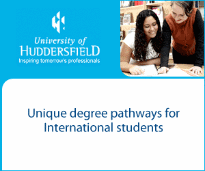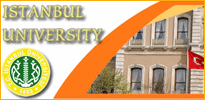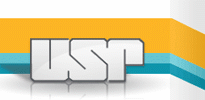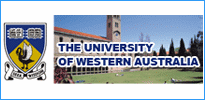Saudi Arabia: Saudi Arabia Education Profile 2012
2012/03/30
Saudi Arabia Education Profile 2012
The literacy rate in Saudi Arabia for males to be 84.7 percent and 77.8 percent for females. Saudi Arabia's nationwide public education system includes few public universities and more than 20,000 schools.
When the Kingdom of Saudi Arabia was founded in 1932, education was not accessible to everyone and limited to individualized instruction at religious schools in mosques in urban areas. These schools taught Islamic law and basic literacy skills. By the end of the century, Saudi Arabia had a nationwide educational system providing free training from preschool through university to all citizens. The modern Saudi educational system provides quality instruction in diverse fields of modern and traditional arts and sciences.[citation needed] This diversity helps meet the Kingdom's growing need for highly-educated citizens to build on its rapid progress.
The primary education system began in Saudi Arabia in the 1930s. By 1945, King Abdulaziz bin Abdelrahman Al-Saud, the country's founder, had initiated an extensive program to establish schools in the Kingdom. Six years later, in 1951, the country had 226 schools with 29,887 students. In 1954, the Ministry of Education was established, headed by then Prince Fahd bin Abdulaziz as the first Minister of Education. The first university, now known as King Saud University, was founded in Riyadh in 1957.
Today, Saudi Arabia's nationwide public educational system comprises twenty universities, more than 24,000 schools, and a large number of colleges and other educational and training institutions. The system provides students with free education, books and health services and is open to every Saudi. Over 25 percent of the annual State budget is for education including vocational training. The Kingdom has also worked on scholarship programs to send students overseas to the United States, Canada, France, the United Kingdom, Australia, Japan, Malaysia and other nations. Currently thousands of students are being sent to higher-educations programs every year.
The study of Islam remains at the core of the Saudi educational system. The Islamic aspect of the Saudi national curriculum is examined in a recent report by Freedom House.[41] The report found that in religious education classes (in any religious school), children are taught to deprecate other religions, in addition to other branches of Islam. The Saudi religious studies curriculum is taught outside the Kingdom in madrasah throughout the world.
When Saudi Arabia formally became a nation in 1932, education was largely limited to instruction for a select few in Islamic Madrassas. Today, public education—from primary education through high school—is open and free to every citizen. Parents are not, however, required to send their children to school, and statistics from 1996 estimated that about 61 percent of children attended school.
Education in Saudi Arabia has never fully separated from its Islamic roots. All curricula must conform to the Islamic Sharia laws and the Qur'an, and traditional gender roles continue to shape educational opportunities available to females. The education of females has increased dramatically in recent years, from 25 percent of all students in 1970 to 47.5 percent in 2001. However, education is largely segregated by gender. There are six Universities which have both male and female sections out of the nation’s eight universities. Certain subjects are not available for women yet. Whereas men are allowed to travel to foreign countries to pursue education, women are encouraged to do so but generally must be accompanied by a spouse or male relative.
Government spending on education continues to grow in Saudi Arabia. In 2004 the government increased education spending by 28 percent over the previous year. Additionally, special emphasis is being placed on technical training in order to fill the labor gap that has long been met with foreign expertise.
The Last census showed that 50% of Saudi male students go to college after high school and that 60% of female students go to college after high school.
Najd National Schools
Najd National Schools (Arabic: مدارس نجد الأهلية) is one of the main schools located in Riyadh, Saudi Arabia. It is in the north part of Riyadh and is built in a very famous part of the city; between King Fahd Street and Olayya Street which are the most used highways in Riyadh. This school was first built in 1983 by Mr Rafic Hariri as a contribution in community developpement.
كلمة الشيخ رفيق الحريري عن مدارس نجد الأهلية)
إن بناء الإنسان المسلم والمواطن الصالح هو من أعظم الأعمال ، ولا يمكن لأمة أنت تتقدم إذا لم يقم أبناؤها بجهد مخلص لتثقيف أنفسهم ثقافة دينية وعلمية . والمعلم هو الأساس في كل ذلك ، وله الفضل الأول والأخير في تقدم الأمة . وأرجو من الله عز وجل أن يوفق المعلمين في المدارس للقيام بواجبهم نحو دينهم وأمتهم . وأود أن أسجل فخري بما لمسته من جهد مبذول من إدارة المدرسة ومعلميها . ( وشكراً
On its first years it contained less than 100 student. Later it became more famous and students number increased. Some of its teachers taught in the school more than 24years. It contains 4 buildings for boys and the same for girls. It also has a huge parking place which is contained of asphalt parking lanes and sand big square.
Najd Schools has a group of one of the hardest national schools exams in Saudi Arabia. Many of Najd Schools students study in well known universities world wide after graduation.
It has teachers from around the Middle East not only from Saudi Arabia. For example there are teachers from Syria, Jordan and mostly from Lebanon
This school's main language is Arabic, they also teach English and a class in each grade for French as a second language.
This school now has history of more than 25 years. This school is under the Saudi Ministry of Education. This school is one of the best schools that teach English in Saudi Arabia, they have a special program for English that gets students who want to study English from other schools.This school prepare its students to pass several international exams as TOEFL,SAT,DELF.
Najd national schools owner decide to move it out to a new location (al-sahafa region).
Saudi Arabia Education Forecast to 2013
- Saudi Arabia News
-
- SAUDI ARABIA: Saudi Arabia detains critics as new Crown Prince consolidates power
- AFGHANISTAN: UNWTO: International tourism – strongest half-year results since 2010
- IRAN: Saudi Arabia denies warming relations with Iran
- UNITED STATES: Saudi King to visit White House in 2018
- SAUDI ARABIA: Yemen: Saudi Arabia 'should fund all humanitarian aid'
- SAUDI ARABIA: Three decades later, Saudis get their first concert
- Trending Articles
-
- UGANDA: Ugandan Govt Starts Verifying International Academy Teachers
- CAMEROON: Poor End of Year Results for Cameroon Students
- AUSTRALIA: Queensland Bauxite Gains State Approval of Mineral Development Work Program
- CANADA: Canadian businesses warn Trudeau against Trump-inspired NAFTA rewrite
- CHINA: China Invites 5 Countries As Guests For BRICS Summit
- KENYA: Kenya to hold fresh presidential election on October 17





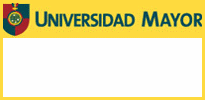
.gif?1338940414)
